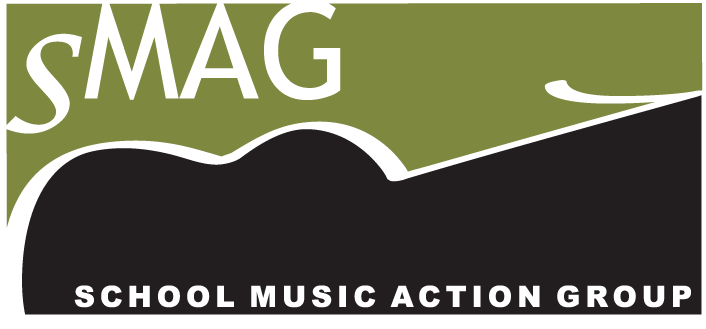The
sMAG (School Music Action Group) Victoria welcomes the clear and explicit
inclusion of Music Education requirements within the Victorian Early Years
Learning Development Framework, http://www.education.vic.gov.au/Documents/childhood/providers/edcare/veyldframework.pdf . We congratulate the Victorian government on the improvements that have been outlined in the
Early Childhood Review and particularly the explicit requirement of inclusion
of music education in 4 of the 5 key delivery areas in the VEYLD Framework for
educators; Identity, Community, Wellbeing and Communication. The inclusion of musical interaction as one
of the ways in which children form a sense of identity, connect with each other
and their world is welcome. The
recognition in the VEYLD Framework of singing and other modes of musical
expression as part of a young child’s means to communicate effectively is also
to be commended. The identification of the important role of all early
childhood educators in promoting musical interactions with young children is
welcomed.
The
understanding that all children should have access to and enjoy interacting
musically with teachers and one another in a learning community, is reflected
in the pages of this document. Further,
the inclusion of music literacy as one of the ways in which children understand
how symbols and pattern systems work in aural art forms (p.31) reflects current
thinking about children's growth and development (Collins, 2014; Williams, Barrett, Welch, Abad, &
Broughton, 2015). It is to be hoped that this will go some way
towards ensuring all educators meet the requirements of the VEYLD Framework.
With adequate data collection, accountability structures and pre service
training, the expected outcomes will be strengthened.
In
the reality of our increasingly globalised and pluralistic society, we also
recognise the value of more inclusive policies. It is therefore heartening to
note that the VEYLD Framework for educators addresses the importance of
inter-cultural aspects of music-making and dance that are essential for
personal and social well being. Under the Early Years Learning and Development Outcome
3. We read that one indication of
children’s’ wellbeing is their response
“through
movement to traditional and contemporary music, dance and storytelling of their
own and other’s cultures” (p.23)
With
sound accountability structures in place to ensure the VEYLD Framework is
implemented in every setting, equity and access in Music Education are more likely
to be addressed in the Birth – Year 2 life stage. This document will assist Early Years
Educators in applying their knowledge to the soon to be released Music
Education Guide Recommendation 6 of the Victorian Inquiry into the Extent,
Benefits and Potential of Music Education (2013). http://www.parliament.vic.gov.au/file_uploads/Music_Education_Final_041113_FJWsJhBy.pdf.
We believe the link between the current
measures being implemented will improve music outcomes for all young children
of Victoria.
We
plan to have further discussions with DET in the coming weeks and believe that
the goodwill evidenced throughout the 2015 processes can be continued to the
benefit of all Victorian students and school communities.
Music
as a key focus for The Education State white paper http://www.education.vic.gov.au/Documents/about/educationstate/launch.pdf has brought and will continue to bring about many
improvements against the Vic Inquiry into the Extent, Benefits and Potential of
Music Education (2013). http://www.parliament.vic.gov.au/file_uploads/Music_Education_Final_041113_FJWsJhBy.pdf . The explicit inclusion
of learning and assessment requirements in the VEYLD Framework again is an
outworking of this welcome commitment from the Victorian Andrews' government. We would see there now to be a clear need to
implement Recommendation 1 on data collection and accountability structures, as
well as, Recommendation 5 on a clear promotion plan to ensure that every
educator delivers on the VEYLD Framework.
In order for all of this to be achieved, attention now needs to be drawn
towards Chapter 5 of the Victorian Inquiry findings http://www.parliament.vic.gov.au/file_uploads/Music_Education_Final_041113_FJWsJhBy.pdf where clear recommendations and evidence is presented to call for
improvements within pre service teacher training in music education to
effectively deliver on the new VEYLD Framework.
We would hope that today’s Victorian budget makes some allowance for
these measures into the coming years.
We look forward to an ongoing conversation and consultation process as
stakeholders to see ongoing improvements into the future.

No comments:
Post a Comment